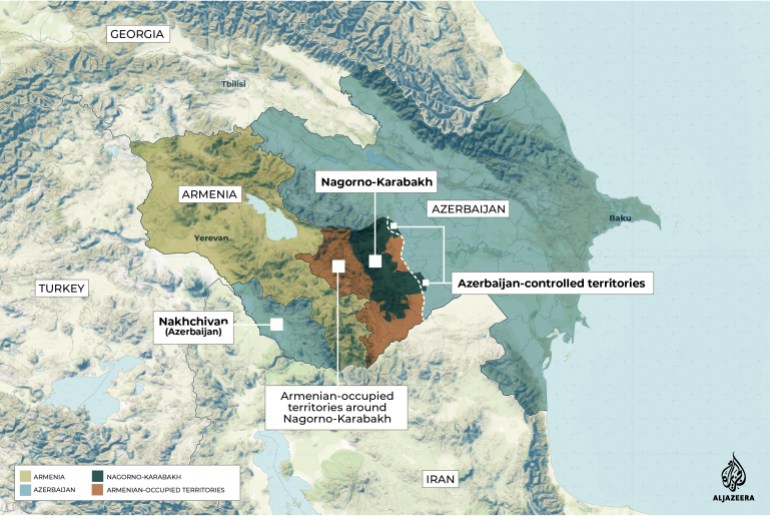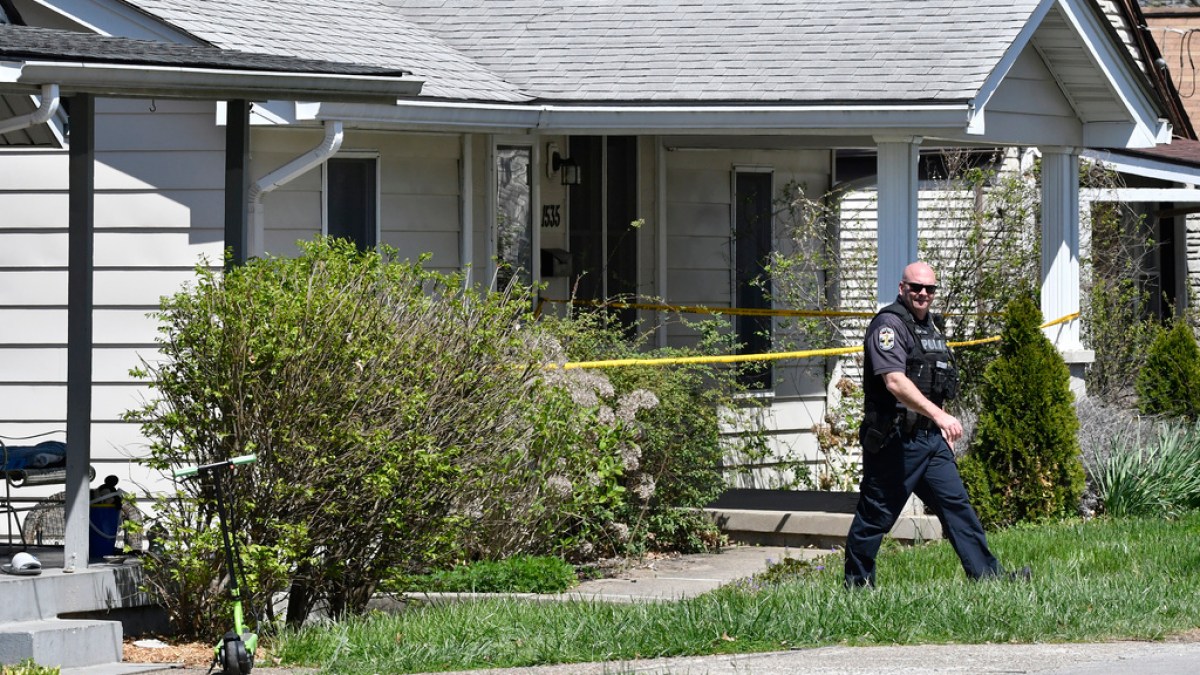Ethnic Armenians expected to flee Nagorno-Karabakh after Azeri victory
Prime Minister Pashinyan says fears of ‘ethnic cleansing’ will lead to mass exodus after defeat last week at the hands of Azerbaijan’s forces.
Tens of thousands of ethnic Armenians are likely to flee Nagorno-Karabakh, and Armenia says it is prepared to take them in after Azerbaijan’s military victory last week in a conflict dating to the fall of the Soviet Union.
About 120,000 civilians in the region in the South Caucasus will leave for Armenia because they do not want to live in part of Azerbaijan and fear “the danger of ethnic cleansing”, Prime Minister Nikol Pashinyan said on Sunday.
“The likelihood is increasing that the Armenians of Nagorno-Karabakh will see expulsion from their homeland as the only way out,” he said.
Armenia “will lovingly welcome our brothers and sisters from Nagorno-Karabakh”, Pashinyan added, according to Russia’s TASS news agency.
Armenia said more than 200 people were killed and 400 wounded in Azerbaijan’s military operation last week. The fate of the ethnic Armenian population, which make up the majority of Nagorno-Karabakh’s population, has raised concerns in Moscow, Washington and Brussels.
Separatist fighters from Nagorno-Karabakh – a territory internationally recognised as part of Azerbaijan but previously governed by the breakaway Republic of Artsakh – were forced to declare a ceasefire on Wednesday after a decisive 24-hour military operation by the much larger Azerbaijani military.
Azerbaijani President Ilham Aliyev declared victory over the enclave on Thursday, saying it was fully under Baku’s control and the idea of an independent Nagorno-Karabakh was finally confined to history.
He promised to guarantee the rights and security of Armenians living in the region, but years of hate speech and violence between the rivals have left deep scars. Azerbaijan, which is mainly Muslim, has said the Armenians, who are Christian, can leave if they want.

‘Disgrace and a shame’
Nagorno-Karabakh, known as Artsakh by Armenians, lies in an area that, over the centuries, has come under the sway of Persians, Turks, Russians, Ottomans and the Soviets. It was claimed by both Azerbaijan and Armenia after the fall of the Russian Empire in 1917.
Azerbaijan has said it will guarantee rights and integrate the region, but the Armenians have said they fear repression.
“Our people do not want to live as part of Azerbaijan – 99.9 percent prefer to leave our historic lands,” said David Babayan, an adviser to the Karabakh leadership. “The fate of our poor people will go down in history as a disgrace and a shame for the Armenian people.”
Hikmet Hajiyev, foreign policy adviser to Azerbaijan’s president, told Al Jazeera that civilians in the region have been asked for a “direct dialogue” about their future, “including political integration [and] socioeconomic issues”.
‘Very much in danger’
Sheila Paylan, an international human rights lawyer, said she does not believe ethnic Armenians will be treated fairly under Azerbaijani rule.
“There is a longstanding policy of hatred towards the Armenians that goes back decades. That just doesn’t stop overnight. There’s no reasonable basis to trust there will be any safety or security or rights protected for the Armenians of Karabakh. … They are very much in danger right now,” Paylan told Al Jazeera.
Armenia has called for the immediate deployment of a UN mission to monitor human rights and security in Nagorno-Karabakh.
Armenian authorities said about 150 tonnes of humanitarian aid from Russia and another 65 tonnes of flour shipped by the International Committee of the Red Cross (ICRC) had arrived in the region.
“Given the scale of humanitarian needs, we are increasing our presence there with specialised personnel in health, forensics, protection, and weapons contamination,” the ICRC said in a statement.




